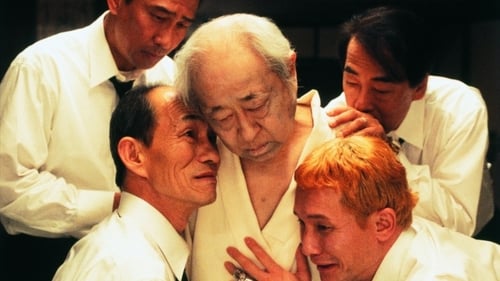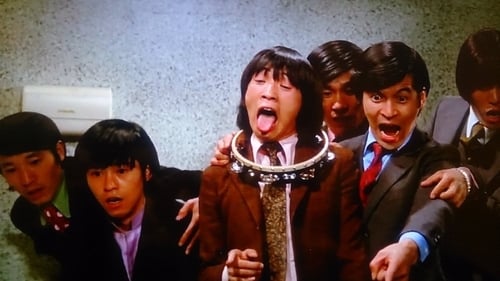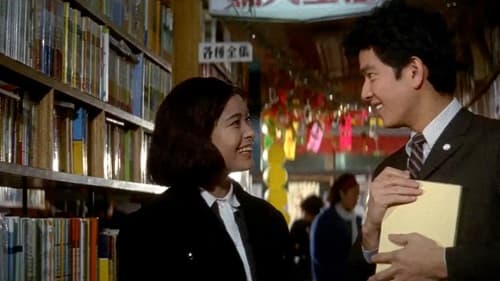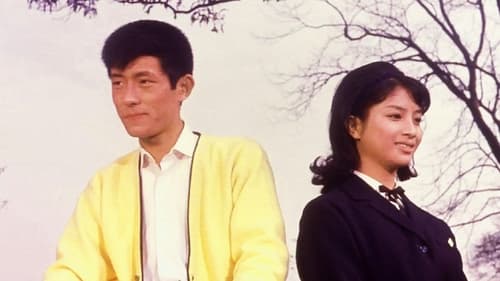
Masaaki Sakai
Birth : 1946-08-06,
History
Born the son of Shunji Sakai, a famous comedian in Japan, Sakai initially came to fame by fronting the group sounds band The Spiders. This group, formed in 1962, was popular throughout the 1960s; they spawned several hit songs as well as thirteen situation comedy films featuring their music.
He took the title role of Songoku (Monkey) in the 1970s Japanese TV program Saiyūki. This gained him fame in many English-speaking countries in the early 1980s when it was dubbed by the BBC and retitled Monkey. Due to his fame playing the mythical character Songoku, Sakai created a dance called "the Monkey" which became a craze in Japan. Sakai went on to a successful solo career after The Spiders disbanded, and continued acting in films and on television.
In 1999, he formed the band Sans Filtre with two former Spiders, Hiroshi Kamayatsu and Takayuki Inoue. They released their first album Yei Yei in 2000.
Sakai is known in Japan as a car enthusiast and regularly took part in the annual Mille Miglia race in Italy with his wife as a co-driver. He won a similar Japanese road race on October 18, 2000 driving a 1947 Cisitalia 202 MM with Inoue Takayuki (the guitarist from Sans Filtre) as co-driver. Due to business commitments he gave up racing in 2002 and gave his Alfa Romeo race car to Masahiko Kondō who is also a singer and race enthusiast. He is also a hobby archer.
Sakai has been married and divorced twice, and has two daughters. He is an active supporter of AIDS charities. His show-business nickname is "Machaaki".

Yuzo Tsutai
A gangster runs a budget nursing home.

In 1897, actor, director, producer and theatre company leader Kawakami Otojiro set off on a tour of the USA with his wife Sadayakko and theatre company members, but in a foreign country where he could not speak the language, he had to struggle against a succession of adversities, including lawyers absconding with the proceeds and actors going on strike. One day, however, Otojiro arrives in Boston on his arduous tour and sees a packed house for a performance of The Merchant of Venice by the famous British actor Henry Irving. In just one night of rehearsals, they concoct a Japanese version of The Merchant of Venice, and perform the play to a foreign audience with bullshit dialogue and a reckless performance that can be cut short by "Sucharaka poko poko" when they get stuck on a word.

Asahi Ishikawa (Old)
Thirteen years afterward, I wonder if those who bombed Hiroshima are looking at me and saying: 'We did it! We were able to kill another person!' They should be," murmurs Minami (played by Kumiko Aso), one of the two leading female characters in Yunagi no Machi, Sakura no Kuni, as she lies dying in 1958, her life brought to a premature end by sickness resulting from her exposure to atomic bomb radiation. This is a story about those who at least initially survived the first U.S. atomic bombing of 1945 and their descendants in contemporary times. The film, based on a comic by Fumiyo Kono, jumps between the two time frames and quietly depicts the sorrow and mortification experienced through the everyday lives of laid-back and soft-spoken Hiroshima people. Only a few scenes of the bombing and the ensuing devastation are featured.

Boss
A celebration of the ancient art of Japanese rakugo, roughly translated as “comic storytelling”. The film is interspersed with numerous funerals and wakes, songs, dances, and often disgustingly crude jokes.

Seigo Yoshioka (Kenji Sakaguchi) is a teacher that became mute after a kendo accident. He feels lost after the accident and eventually decides to teach again on a small island where his mother was born. The children there on the island quickly name him "Kikansha Sensei" (Teacher Locomotive) after learning he is mute. The parents on the island are mostly hostile to Seigo Yoshioka, believing he is incapable of teaching their children. But with Seigo Yoshioka's determination and kindness, a strong bond develops between the students and the mute teacher, which then changes the parents' opinions of Seigo Yoshioka. Suddenly, tragedy then strikes ...

Bored Hatamoto film

Chiyomatsu Sakanoshita

Okabe
Teenage film

Mamoru Hirayama, the sales manager of Clover Shoji, a women's underwear manufacturer, was selected by President Usui to be the manager of the foreign affairs section newly established in the sales department. Masaaki Sakata, Yasushi Inoda, Osamu Yamabe, and Jiro Oi were assigned to this foreign affairs section. Hirayama, a former soldier, is suddenly enthusiastic when the company orders him to join the Self-Defense Forces. One day, in the library where the records of the former army are displayed, Hirayama recalls his memories of that time. It turned out that the bundle of bills that the captain had made a mess of was packed in a box and buried somewhere.

Layabout teen Shoken is dissatisfied with his nagging single mother and bullies at school. He and his friends decide to form a cool rock band, but when Shoken learns that his mother is actually his aunt and his parents died, he becomes very agitated and runs away from home.

Masaaki Sakai
The Spiders, a 1960s Japanese Group Sounds band, star in this rare Monkees and Beatles inspired secret agent movie. During their Asian tour spies try to smuggle plutonium hidden in The Spiders' guitar amps!

Masaaki Sakai
Popular Japanese Group Sounds band, The Spiders, star in their second movie, a "HELP!" inspired rock n roll spy movie!

Masaaki
The Spiders, a Japanese pop group, in their first starring role, walk from Yokohama to Tokyo, to prove their love for a girl who told them "the person who can overcome any obstacle will be my lover"! Neither traffic, buildings, nor the police can stop them, in this madcap rock musical adventure!

After an argument with his father a son leaves his home and comes back only, as an adult, many years later just to cause them problem after problem.

The Spiders hit song made into a movie.

The Crazy Cats, a Japanese musical-comedy group, were showcased a series of comic adventures throughout the 1960s. Las Vegas Free-For-All, one of their most popular movies, featured scenes filmed on location in Las Vegas, Los Angeles, and Hawaii. Appearing with the seven Cats were the lovely Mie Hama and such Japanese musical artists as The Peanuts, The Johnnys, The Drifters, and Jackie Yoshikawa & the Blue Comets.

Kenichi and Satoru join up with three other electric music lovers to form their own band, "The Young and Fresh."

Sabu
Kazuo Kitagawa lives on a farm on the Tateshina Plateau with his late teacher's widow and daughter, continuing his research. One day, Kazuo is attracted to the beautiful young lady who is visiting the villa when he goes out to the town…

Sabu
The young yakuza who have arrived in the city are being taught the beauty of work and the pleasure of learning by hard-working young people of the same generation. Youth masterpiece created based on the hit Kazuo Funaki.

Japanese comedy directed by Noriaki Yuasa.

A story full of youthful vigor and spirit as high school students try to work out their problems, realize the awakening of love and growing maturity and find fun and happiness in helping others.

Masaya Matsui
A young man longs to travel to Hawaii, the birthplace of his deceased father, against the wishes of his family, who are estranged from those relatives in Waikiki.

Akira Tanaka
An uplifting drama about the bond between a group of high school seniors and their kind-hearted teacher, Mr. Yabuki. Faced with the rigors of growing up in modern times, students often look to Mr. Yabuki for advice and guidance. But when Mr. Yabuki’s career is threatened as a result of a false accusation from the school’s PTA, the students band together to stand up for their beloved teacher and help him to save his good reputation and job.

Today is a new day with hopes. A youth hymn that depicts a young truck driver growing up in love with a dream while being supported by his friends who are always close to him. A movie adaptation of a hit song by Kazuo Funaki.

Matsubara
A Tokyo student transfers to a rural school and finds it difficult to adjust himself to its customs and traditions. One of the customs is the wearing of an old school cap by a senior. It is a symbol of courage and bravery and is handed down to a new senior each year.

In 1963, Funaki Kazuo's debut song of the same name was released and then it was adapted to a movie based on Kenji Tomishima 's novel “Shake to Tomorrow” with the same title, produced by Daiei with this song as a motif. Singer and actor Funaki Kazuo also appears in the movie, which depicts the fun, love and heartbreak in a Japanese school.

A 1954 film.













